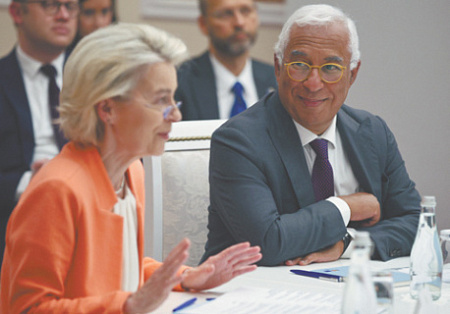
Top European Union officials will meet with Chinese President Xi Jinping and Premier Li Qiang in Beijing on Thursday for the 25th EU-China summit. The meeting, intended to mark a diplomatic milestone, is overshadowed by profound disagreements, setting the stage for a tense encounter where Brussels will confront Beijing over its support for Russia’s war machine and what it views as unfair trade practices.
At the heart of the dispute are two critical issues. European leaders, including European Council President António Costa and Commission President Ursula von der Leyen, are alarmed by what they describe as China’s dumping of subsidized goods like electric vehicles and solar panels, which they argue undermines European industries. Simultaneously, the EU is demanding that Beijing ceases its cooperation with Russia’s defense-industrial base, a major point of friction as the war in Ukraine continues.
Beijing, however, shows little sign of conceding. Adopting a hardline approach, China has countered with accusations of European protectionism and has demonstrated its economic leverage by restricting exports of critical minerals. In a clear signal ahead of the summit, President Xi publicly reaffirmed his support for Moscow, indicating that Beijing is unwilling to bow to Western pressure regarding its key geopolitical alliances.
Despite this tough posture, China’s official narrative, articulated through state media, calls for focusing on consensus and the successes of the past 50 years. Beijing highlights the staggering growth in bilateral trade, which has surged to nearly $786 billion, and urges Europe to maintain “strategic autonomy” from Washington. This rhetoric of mutual benefit, however, stands in stark contrast to the tense reality of the current relationship.
Analysts suggest China’s confidence stems from its perception of a shifting global order and a weakened transatlantic alliance. Beijing sees an overextended United States and growing rifts, creating more space to assert its own interests. The summit’s own logistics—reportedly relocated to Beijing from Brussels and shortened to a single day—are seen by many as a symbol of China’s perceived upper hand in a partnership increasingly defined by confrontation.
